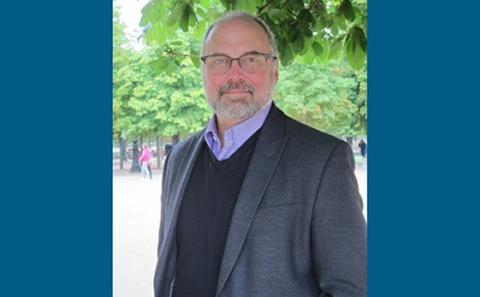Lawrence Zbikowski Hartley Residency Seminar

- Date:
- 14 - 15 March 2017
- Venue:
- Building 6, Room 1077 (Lecture Theatre A)
For more information regarding this seminar, please email David Bretherton at D.Bretherton@soton.ac.uk .
Event details
We are delighted to welcome Prof. Lawrence Zbikowski (University of Chicago) for our second Hartley Residency of the 2016-17 academic year.
Schedule
Day 1: Tuesday 14 March 2017
11:00–12:30, Room 6/1077: Introductory seminar for postgraduates. Material that students should read in advance has been circulated.
14:00–15:30: One-to-one meetings between Lawrence Zbikowski and PhD students (appointments should be arranged through David Bretherton, D.Bretherton@soton.ac.uk).
16:00–17:30, Room 6/1077: Formal presentation: Lawrence Zbikowski, 'Preconditions for the Construction of Musical Meaning'. Chair: Danuta Mirka.
To be followed by a wine reception in the Arlott Bar.
Day 2: Wednesday 15 March 2017
10:00–13:00: One-to-one meetings between Lawrence Zbikowski and PhD students (appointments should be arranged through David Bretherton, D.Bretherton@soton.ac.uk).
14:00-15:30, Room 6/1077: Formal presentation: Danuta Mirka, 'Eighteenth-Century Views on Musical Motion and Emotion'. Chair: David Bretherton.
16:00–17:30, Room 6/1077: Roundtable: 'Music and Emotion, From the Perspectives of Music Theory, Performance and Composition'. Panellists: David Bretherton, David Owen Norris, Matthew Shlomowitz, Lawrence Zbikowski. Chair: Danuta Mirka.
'Post-Hartley' PGR Study Morning: Thursday 16 March 2017
09:00–11:00: Meetings of PGR Study Groups.
Group 1: 2/2061. Musicology/historical topics, including performance practice, up to the end of C18th. Suggested members: Cardona, Amersfoort, Newcombe, Mazzetti, Glenton, Thomas, Ticli.
Group 2: 85/2211. Musicology/historical topics, including performance practice, from C19th onwards. Suggested members: C. Tang, J. Tang, Stafford, Alcock, Garry, Hawnt, Wang, Venegas Butt, Osmond.
Group 3: 85/2213. Technology. Suggested members: Brough, Kent-Muller, Mercier.
Group 4: 67/1013. Composers.
11:00–13:00, 6/1077: Plenary Session for all PGRs. Mark Everist will lead a discussion of Richard Taruskin, 'The Spin Doctors of Early Music', The New York Times, 29 July 1990, R as 'The Modern Sound of Early Music', Text and Act (Oxford and New York: Oxford University Press, 1995), 164-194 + 'Postscript 1994', ibidem, 194-197.
Abstracts
Lawrence Zbikowski (University of Chicago), 'Preconditions for the Construction of Musical Meaning'.
In this paper I explore the resources as well as the limitations musical materials offer for the construction of meaning. As has often been observed, musical communication is substantively different from linguistic communication, so much so that some have argued that musical communication is at best an illusion. Nonetheless, the prevalence of music throughout human cultures would seem to suggest that it has real efficacy within human social interactions, and that this efficacy can be broadly understood to reflect music's potential for the construction of meaning. Drawing on my recent work on the foundations of musical grammar, I shall propose that this potential reflects the way music exploits what I call analogical reference, a form of reference that both facilitates and constrains musical meaning.
Danuta Mirka (University of Southampton), 'Eighteenth-Century Views on Musical Motion and Emotion'.
The connection between music and emotion was the fundamental premise of eighteenth-century music aesthetics. The origin of this connection was sought in the similarity between musical motion (Bewegung) and 'motion of the soul' (Gemüthsbewegung), as emotion was called by German authors. In their discussions they relied on psychological theories of emotion available at the time. For Mattheson it was the theory of emotion adopted by Kircher in Musurgia universalis (1650), according to which affects are caused by the so-called animal spirits flowing in nerves and stimulating physiological processes such as blood circulation. Sulzer, Kirnberger and Forkel adopted a new theory of emotions based on nerves and nervous system. Although it was proposed by Newton and advanced by Locke in An Essay Concerning Humane Understanding (1690), it only gained popularity with the rise of experimental physiology in the 1740s. While each of the eighteenth-century German authors portrayed motion of the soul with a different image, all of them agreed that different aspects of this motion can be represented by different musical parameters. Consequently, all states of musical parameters and their configurations have affective qualities. From this conviction grew their view of music as the 'unfathomable sea' of affects described by Mattheson: an inexhaustible source of expression and boundless resource for infinitely nuanced representation of emotional states.
Speaker information
Lawrence Zbikowski, University of Chicago. Professor of Music and the Humanities.
Danuta Mirka,Professor of Music Theory.